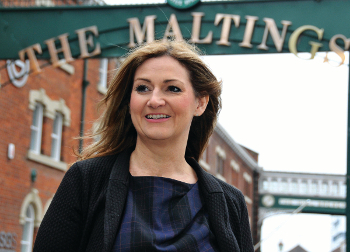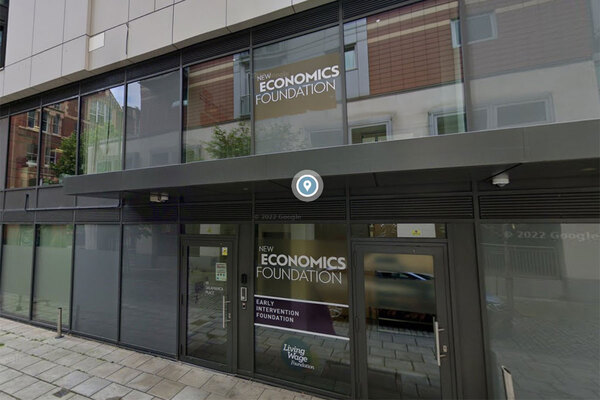You are viewing 1 of your 1 free articles
Levelling up procurement
Four housing associations are channelling their energy and resources into ensuring slick and reliable services for tenants

Children from Tyssen School plant bulbs around Southern’s Stamford Hill Estate.
Ground work
Southern Housing group
Number of homes: 28,000
Residents served: 67,000
About four years ago, Southern Housing Group decided to do something about its grounds maintenance and cleaning contracts.
At that time, around 90 contractors were employed to keep things tidy across Southern’s 28,000 homes, and the association was spending just under £2m a year.
Quality was variable. A survey of residents found that only about 30% believed they were getting value for money. ‘We felt that wasn’t good enough,’ says Bill McCormick, group procurement manager at Southern.
At first, Southern’s three-person procurement team asked a consultant for help. ‘They came back with a very generic approach of a single supplier [of grounds maintenance and cleaning services] for the entire group,’ Mr McCormick says.
But for Southern, this approach wasn’t attractive. This was partly because the price would be set once, in 2012, and then stay the same for the length of the contract, which might last 10 years. The association also wanted residents to have an element of choice in how the service was delivered, which it felt would be missing from one, standardised contract across its stock.
So instead, Southern approached Procurement for Housing (PfH). Together they designed a framework, which would allow the housing association to organise its stock into nine lot areas. On the framework was a list of approved suppliers for each of these areas, for each of the two services (cleaning and grounds maintenance). Then, Southern was able to start a phased programme of mini-tenders, area by area.
The framework set out the basic standards that all services must meet. Next, an eight-page document was designed for each site setting out the specifications. Residents have been consulted on those specifications, down to a minute level. For example, they were given the opportunity to say what should happen to unused spaces, perhaps turning them into an allotment or playing area.
Because the process is phased, Southern has been able to learn from its experience. For example in the first mini-tender, which Mr McCormick refers to as a ‘guinea pig test’, the extensive questionnaire and specification sent to residents was off-puttingly detailed. It was ‘information overload’ for residents, he explains. From now on, residents will be sent a list of more generic questions (although they can see the specification if they request it).
These formal specifications were lacking before and are helping suppliers understand what is required of them. It gives Southern and residents a check-list to see if standards are being met, he adds. A photo book has been produced to help residents identify if reality is falling short of those standards.
This approach has paid off in terms of quality, Mr McCormick says - and also price. The first mini-tender has ended and contracts were signed in September last year. The savings? Roughly 30-50%.
Clearing the backlog
Radian
Chief executive: Lindsay Todd
Homes owned and managed: 21,000

Carly Haswell, procurement manager, Radian
Radian had a procurement backlog. When Carly Haswell started as procurement manager in 2012 at the 21,000-home housing association, she was only the second dedicated member of staff dealing with procurement.
One of the first things she did was promote procurement within the organisation, as a way of doing things better and more efficiently. Procurement toolkits were produced and put on the intranet, for example. ‘We have now got people thinking more proactively about procurement, ’ Ms Haswell says, which led to more demand for the team’s services. As well as the extra demand, the organisation, which was formed from a merger of three housing associations in 2006, still had some legacy procurement issues that needed sorting out.
In the middle of last year, Radian decided to work with Procurement for Housing (PfH) on a solution.
Ms Haswell explains: ‘We engaged them to act as an extension of our procurement department.’
Now the organisations are at the beginning of a two-year partnership, whereby PfH is working with Radian to deliver 30 pre-selected procurement projects, from energy brokerage to tree surgery. PfH has hired a local procurement expert to assist the in-house team, and they have access to PfH’s sector experts.
The projects were selected by analysing Radian’s data on how much it was spending on what. ‘In one instance, we had three contracts for the same thing. It was just a legacy from the merger,’ Ms Haswell recalls.
‘In any particular project they start to deliver, they carry out an options appraisal,’ she explains. This means identifying the best solution for Radian, not just opting automatically for one of PfH’s own frameworks.
So far, nine of the 30 projects are out to tender. It is too early to identify savings made yet, but Ms Haswell is encouraged by the projections.
The partnership has also prompted Radian to examine its own documentation, and to work out what the housing association wants in terms of hiring small and medium-sized enterprises, for example. Radian has also set up a residents panel which helps with procurement.
Ms Haswell adds: ‘It has allowed us to move very quickly, and we’ve got access to more procurement experts.’
Building a base
Pickering and Ferens
Received housing association status: 1978
Chief executive: Claire Warren

Claire Warren, chief executive, Pickering and Ferens
When Claire Warren started as chief executive of Pickering and Ferens two years ago, one of her first observations was ‘we’d not engaged with the procurement agenda’.
The reasons? 1,200-home Pickering and Ferens is small. The organisation, which has its origins in housing ex-fishermen in the early 1900s, lacked capacity, with the equivalent of 34 full-time staff. And there was ‘a fear that procurement can become very complicated at times’.
‘Being better at procurement was central to our fit for the future strategy, our change strategy as an organisation,’ Ms Warren explains. ‘We looked at who would be around to support us in bringing us up to speed.’
In the summer of 2013, it found Procurement for Housing (PfH). ‘The first thing they offered us was the spend analysis,’ she explains.
Bringing together all the data on how much the organisation was spending, and on what, meant collecting it from different finance and maintenance ordering systems. ‘The information was there, but it wasn’t pulled together,’ says Ms Warren. ‘We have used our spend data to support our procurement strategy, our approach to contract and supplier management and to challenge the efficiency of our internal processes.’
That analysis was presented to the board by November 2013. ‘Then we used the information within that to devise a procurement strategy,’ Ms Warren recalls.
By identifying those contracts which were ‘higher spend or more risky’, it became clear which contracts it should focus on for the future. It also helped identify if the procurement strategy was delivering on other objectives, such as hiring local businesses. Pickering and Ferens could see how much it was spending in its area of operation - Hull and East Yorkshire - and how much was spent with SMEs.
Since that time, ‘we’ve undertaken a couple of procurements’, Ms Warren says. As a result, the association has managed to secure better services for tenants at the same cost.
And as those contracts are awarded, tenants will get to experience the benefits. For example, Pickering and Ferens expects its new gas servicing contract to allow residents to make appointments by text for the first time.
Even the association’s previous contractors have stepped up their game. ‘The expectations have been raised, definitely. They know we are placing ourselves much more firmly into the marketplace in terms of looking at what’s out there.’
And the association’s own staff benefit as well. As Ms Warren says, ‘The whole process has been great in-house training.’
An elevation in performance
Stonewater Housing
Homes managed: 30,000
Number of lifts: 200
31,000-home Stonewater Housing needed a new lift contractor. Fiona Adams discovered this as part of a procurement review she carried out after she was recruited in May 2012. Ms Adams was the first procurement manager for Jephson, which merged with Raglan Housing Association to become Stonewater in January 2015.
The association had nearly 200 lifts, maintained by several suppliers. ‘The transparency wasn’t quite there and the spending was much higher than was envisaged,’ she explains.
At the start of 2013, she decided to bring on board Procurement for Housing (PfH) to help procure a new contractor. She describes the benefits of this working arrangement as ‘lots of added value, without a long-term commitment’.
PfH went out for tender and asked for contractors to provide two different bids - one for regular maintenance of the lifts, similar to the contracts that were being replaced, but also for comprehensive cover that would cover all problems.
Although the less comprehensive package had a cheaper price ‘on the face of it’, after examining the extras the association had been paying for in the past, it becomes clear that the overall price is not a true reflection of the costs incurred, Ms Adams says. The contract was awarded after a full tender in June 2014, and has saved Stonewater money. This has been achieved by careful monitoring of lift repairs, carried out to the right standard.
When it comes to value for money, Ms Adams thinks the contract has delivered. ‘We’ve got financial savings. If you look at the reduction in costs in terms of invoice processing, if you’ve got a single supplier, that’s a massive decrease in contract management. You can definitely feel the benefit.’ Monitoring of lift safety and customer service has improved too. ‘We’re just more focused and aware, and clear on what we’re getting,’ she says.
Article written in partnership with Procurement for Housing











